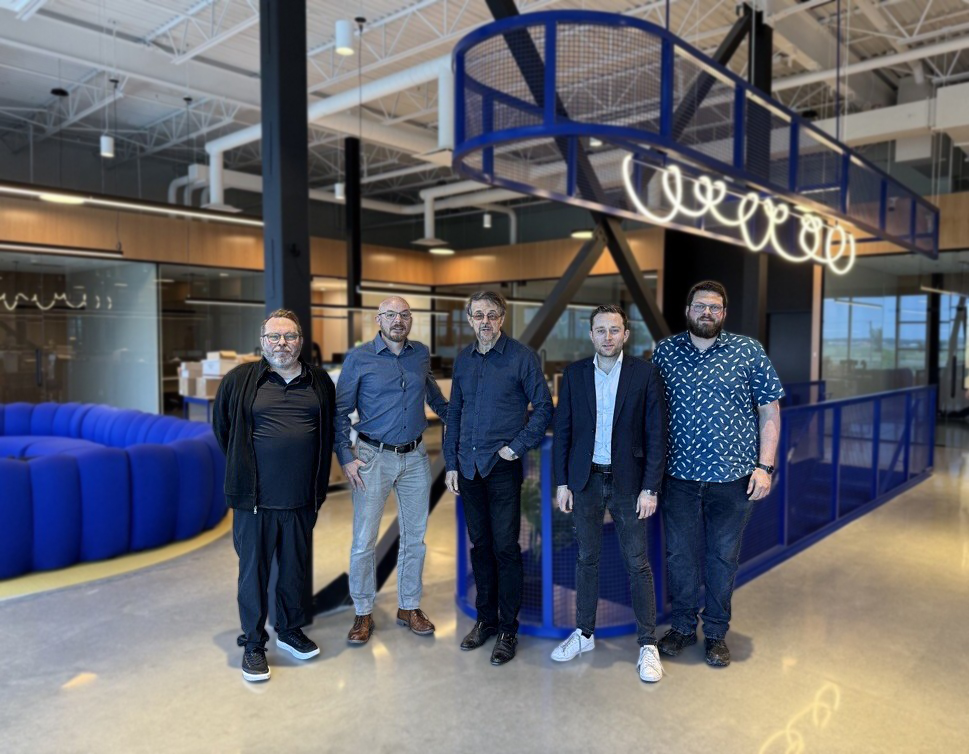More details from ADLIB (http://www.adlibsolutions.co.uk):
LIVERPOOL, UK – Sound, lighting and AV rental specialist ADLIB celebrated the start of 2012 by fully inaugurating and moving in to its new warehouse in Speke, following another strong trading year and steady growth.
This has more than doubled their existing space to more than 50,000 sq. ft.
The last 12 months has seen some serious construction and renovation work take place at the premises totalling an investment of over £1 million including the property purchase.
The buildings and the existing one next door have been combined into a super-efficient working environment optimized for ADLIB’s busy operation, with more room for all divisions of the company.
In addition to this, a further £1.2 million was invested in new equipment last year to ensure that the current rental stock in all departments offers the latest, best and most popular technologies to ADLIB’s clients and projects.
Integral to the new warehouse is a self-contained classroom complex, seating up to 85 and configurable in different formats, plus a series of practical areas for training sessions and seminars. This has dedicated toilets and a catering area.
Training has long been at the core of the company’s philosophy and central to its modus operandi, and creating these facilities has always been one of CEO Andy Dockerty’s visions.
As well as ADLIB’s own extensive internal training programmes, the new facilities are also available for use by suppliers and manufacturers to stage their own open days, product awareness and training events.
Just outside the classroom is a large demo area that can be fully draped off, which is set up with four different audio consoles, allowing engineers to experiment.
Also new is a separate space dedicated to rigging and motors, a series of prep bays plus service and technical areas and workshops.
The overall office space has now doubled, with more room for the Accounts Department, which has gained another member of staff. This, together with an airy new master boardroom, is integral to the contemporary internal layout.
The Lighting and AV departments have also had their available space doubled with the works, which together with staging and sets, reflects the growing demand for ADLIB as a single-source provider for shows and events.
The company has taken on six other new full-time staff as part of an on-going restructuring process of which the new warehouse is a key element, bringing the total to 85, plus the regular pool of freelance engineers and technicians.
Tim Robinson has come onboard to co-ordinate the Hire Track department and Dave Bennett has joined to supervise rigging, staging and associated accessories.
Gareth Dubbeling joins the team as workshop manager, in charge of all incoming projects, while John Fitzsimmons will map all the kit and run inventories and stock holding checks. Dave Platt is the new warehouse manager for Lighting & AV and Jon Priest joins Tristan Bryant in the AV department.
Five new apprentices have also been taken on with more to follow shortly.
ADLIB is part of the Creative Apprenticeship scheme run in conjunction with Liverpool Community College. This underlines the company’s staunch commitment to offering young people the opportunity to learn real skills and the correct attitudes they will need for a successful future career in the production technology industry.
Says Andy Dockerty, “The expansion, the restructuring and the new warehouse has been a necessity to service not only our clients’ increasing demands but also to service our internal needs and requirements. The demands upon our office and warehouse staff to continually deliver under the constraints put upon them by lack of space and support were becoming increasingly problematic. Now we collectively have a far superior infrastructure in every way, with both the facilities and personnel to provide a solid foundation for the next five years’ development.”



